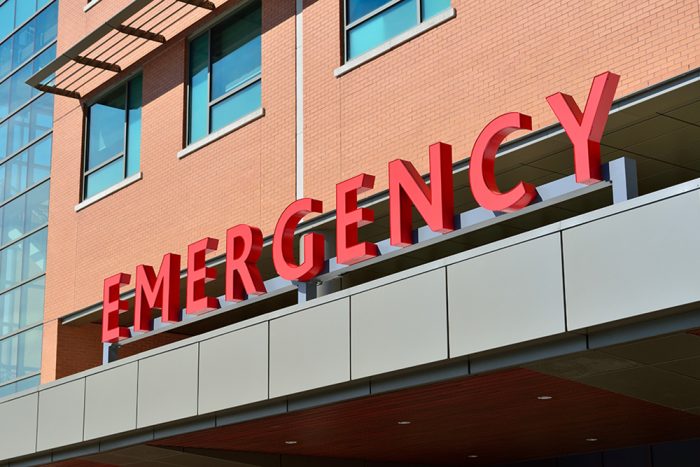RCPA & State Partners Send Letter to PA Congressional Delegation, Urge Extension of EPTCs
RCPA, as part of a statewide provider and association coalition, has sent a letter to the PA Congressional Delegation regarding the extension of the Enhanced Premium Tax Credit (EPTC). The coalition urges Congress to move quickly to pass legislation extending EPTCs that make marketplace plans more affordable for people who purchase their own health insurance; these are set to expire at the end of 2025.
If EPTCs are not extended, an estimated 270,000 Pennsylvanians are likely to become uninsured. Pennsylvania taxpayers end up paying for their care in one way or another because uninsured people are often forced to delay or avoid care for treatable conditions. They ultimately end up sicker and require more expensive care in hospitals, which leads to higher, uncompensated care costs for both hospitals and providers. In addition, they acquire medical debt and experience health complications that can jeopardize their employment or employability.
Read the letter here. If you have any questions, please contact RCPA COO Jim Sharp.
RCPA Federal and State Telehealth Update — Sept. 18, 2025
National Council Shares SAMHSA’s Strategic Priorities
OMHSAS Certified Recovery Specialist Stakeholder Survey
The Office of Mental Health and Substance Abuse Services (OMHSAS) is inviting Certified Recovery Specialist (CRS) Professionals, CRS Supervisors, CRS Providers, Primary Contractors, Behavioral Health Managed Care Organizations (BH-MCOs), County Mental Health Representatives, and Single County Authorities (SCAs) to give feedback on providing Medicaid services through Certified Recovery Specialists.
Stakeholders who will not have an opportunity to join us on a virtual listening session are encouraged to complete this survey to provide feedback. The survey will remain open until Friday, October 10, 2025. We encourage stakeholders to complete the survey well before October 10, so your feedback is received in a timely manner. If you have any questions about the survey, please contact Barry Decker or Kathy Nichols.
CMS Releases Rural Health Transformation Program Fund Application
The Centers for Medicare & Medicaid Services (CMS) released the application and details on how states can apply to receive funding from the $50 billion Rural Health Transformation (RHT) Program created under the recently-passed budget reconciliation bill.
Half of the funding will be evenly distributed to all states with an approved application. The remainder will be awarded to approved states based on individual state metrics and applications that reflect the greatest potential for and scale of impact on the health of rural communities. Applications must come from a state government agency or office and include a letter of endorsement signed by the governor.
There are several key considerations to keep in mind regarding the RHTP:
- Application deadline: States have until November 5 to apply, and this will be a one-time application. CMS will announce approved states by December 31 and begin disbursing funds in 2026.
- Program goals: The RHTP outlines five strategic goals rooted in the statutorily approved uses of funds:
- Make rural America healthy again: Support rural health innovations and new access points to promote preventive health and address root causes of diseases.
- Sustainable access: Help rural providers become long-term access points for care by improving efficiency and sustainability.
- Workforce development: Attract and retain a highly skilled health care workforce by strengthening recruitment and retention of health care providers in rural communities.
- Innovative care: Spark the growth of innovative care models to improve health outcomes, coordinate care, and promote flexible care arrangements.
- Tech innovation: Foster use of innovative technologies that promote efficient care delivery, data security, and access to digital health tools by rural facilities, providers, and patients.
- States will receive and manage funds: Unlike previous federal relief programs, the RHTP does not provide direct payments to rural providers and clinics. Instead, states must apply for and manage the funds, with CMS approval.
- CCBHC-specific considerations: The RHTP specifically directs applying states to provide a current list of Certified Community Behavioral Health Clinic (CCBHC) entities within their state as of September 1, 2025, every active site of care associated with each CCBHC entity, and the address of every active site of care. For applications without this information, CMS will estimate the number of CCBHCs in the state using the most recent list of CCBHCs as maintained by the Substance Abuse and Mental Health Services Administration (SAMHSA), the list of CCBHCs supported through the Section 223 CCBHC Medicaid Demonstration and through SAMHSA-administered CCBHC Expansion (CCBHC-E) Grants, and State-certified CCBHCs listed on state government websites for states that use other Medicaid authority to designate CCBHCs (such as Medicaid State Plan rehabilitation authority). The addresses of these CCBHC sites, as available, will be compared to rural area designations using the current HRSA definition of rurality to determine whether a CCBHC is in a rural area.
CMS has scheduled two webinars for RHT Program applicants as follows:
Friday, September 19, 2025 at 3:00 pm (ET)
Register in advance for this webinar
Thursday, September 25, 2025 at 3:00 pm (ET)
Register in advance for this webinar
The deadline for states to apply is November 5, 2025.
There is only one opportunity to apply for funding and CMS will announce awardees by December 31, 2025. Additional information about the Rural Health Transformation Program is available on the program’s web page as well ANCOR’s Medicaid Resource Center.
As a reminder, the RHTP funding is not limited to hospitals or any specific provider types, and may also be used by states to support their community-based disability programs.
In preparation for Pennsylvania’s submission for the RHT initiative, the Department of Human Services (DHS) elicited public comment and feedback as it related to the State’s ongoing strategic implementation of the 2025–2030 Rural Health Plan and the grant application. The plan was developed with input from rural community leaders, health professionals, academic institutions, and policymakers to identify key priority and action steps to address the unique health challenges and opportunities in Pennsylvania’s 48 rural counties. Primary focuses include access to care, behavioral health, oral health, maternal health, workforce development, broadband connectivity, and health equity.
RCPA submitted member comments to DHS in accordance with the request that ensures equity and provider involvement in the ongoing implementation of the plan as well as the utilization of the RHT in Pennsylvania, including the expansion of integrated health ICWC and CCBHC programs, and development of opioid treatment program medication units, which Pennsylvania currently prohibits. The 2025–2030 Pennsylvania Rural Health Plan can be found here.
RCPA Submits Comments on CMS 2026 Physician Fee Schedule
National Council for Mental Wellbeing Annual Membership Meeting Registration
Greenspace x RCPA Webinar for RCPA Members: Unlock Better Outcomes with Measurement-Based Care
Reminder for 2025/26 Pennsylvania State Budget Impasse Survey Due Sept. 15
REMINDER — PLEASE DISREGARD IF YOU HAVE ALREADY COMPLETED THIS SURVEY
Pennsylvania’s General Assembly has not yet passed the budget for FY 2025/26, and we are already two months into this fiscal cycle. This delay is creating another crisis while communities grapple with the longer-term implications of the recently passed HR 1 Tax Reconciliation Bill at the federal level. We want to hear from you via this 2025 Budget Impasse Survey so that we can raise a collective nonprofit clamor about the impact this delay has on real people in every neighborhood and community in the Commonwealth.
We know — our organizations are over-surveyed during times of urgency!
So, to eliminate duplicative work, various associations and networks, including RCPA, have come together to collect data regarding both the current and projected impact on both for-profit and nonprofit financials, staffing, and ultimately those served. We will share information with everyone involved so that the survey results can be analyzed and disseminated to the media and legislative contacts most efficiently. Below are the organizations that are coming together to collect this data in order to show you the importance of this information.

For more details about the length of the survey and those best suited to complete it, please see this PDF version so you can prepare. The initial survey deadline is 11:59 pm on Monday, September 15, 2025. For questions about the survey, please email Anne Gingerich, Executive Director, PANO.

















